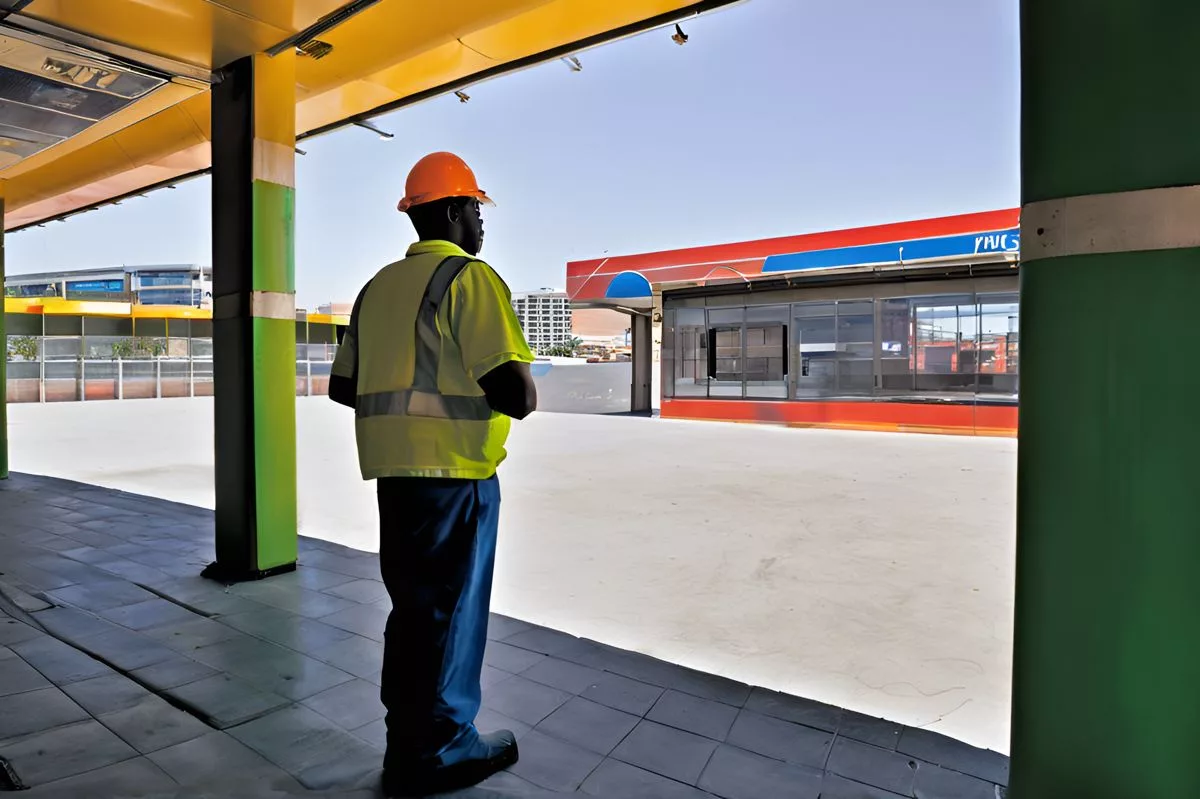Cape Town’s Urban Mobility Initiative aims to rebuild the MyCiTi bus stations in Dunoon, Usasaza, and Phoenix that were damaged during protests in 2018. The project involves removing and refurbishing damaged structures, paving repairs, and installing rainwater and electrical systems. The initiative is a symbol of the city’s resilience and commitment to delivering services to its residents and is expected to be completed by November 2025. The project requires community participation in promoting peaceful protests and negotiations over destruction and violence.
What is Cape Town’s Urban Mobility Initiative?
Cape Town’s Urban Mobility Initiative is a project aimed at restoring the MyCiTi bus stations in Dunoon, Usasaza, and Phoenix, which were damaged during violent protests in 2018. The initiative involves the removal and refurbishment of damaged structures, paving repairs, and the installation of rainwater systems, electrical, mechanical, and fire installations. The project is a symbol of the city’s resilience and commitment to delivering services to its residents. The complete reinstatement of the MyCiTi bus service is expected by November 2025.
A New Chapter in Public Transit
In an unflinching display of determination, the Urban Mobility Directorate of Cape Town has declared the start of an ambitious endeavor: the restoration of the MyCiTi bus stations in Dunoon, Usasaza, and Phoenix. The Phoenix station, recently named the ‘Freedom Station,’ forms part of this powerful trio of transit centers. These stations bear the wounds of intense service delivery protests that took place in 2018. But guided by the tenacious leadership of Councillor Rob Quintas, the city is prepared to rise, phoenix-like, from the past’s ashes.
On September 10, 2024, the construction barricades and warning signs will surround Dunoon and Usasaza Stations. This signals the beginning of an undertaking meant to breathe life back into these critical transportation arteries. An exhilarating chapter in the story of Cape Town’s urban mobility is about to unfold. The following year promises to be one of transformation, climaxing with the grand reveal of the renovated stations by the end of November 2025.
A Rebirth of City’s Transportation Hubs
These three stations, once vibrant centers humming with activity and filled with commuters, were transformed into ghostly echoes of their past selves due to violent protests in February 2018. Access to the communities they served was cut off. The stations’ reconstruction is not just a physical renewal but a renewed commitment from the city to its residents. According to Councillor Quintas, the initiative is a demonstration of the city’s dedication to “delivering services” and a commitment to “keep Cape Town moving.”
The road to reconstruction is filled with numerous tasks. The plans involve the removal and refurbishment of damaged steel structures and structural screeds, paving repairs, and setting up of pre-manufactured kiosks. Additional improvements encompass floor finishes, glazing panels, aluminium doors, roller shutter doors, aluminium ceilings, and roof coverings. The project includes the installation of rainwater systems, electrical, mechanical, and fire installations, alongside external works. An extra low floor station will augment the Dunoon station, boosting its effectiveness.
A Testament to Cape Town’s Resilient Spirit
The rebuilding serves as a symbol of the city’s unyielding resolve and is partially funded by the City’s insurance, promising a beacon of transformation. The complete reinstatement of the MyCiTi bus service is expected by November 2025, signaling the conclusion of a journey that started with devastation and ends with an emblematic resurgence.
Yet, the City of Cape Town also requires the community’s participation. Councillor Quintas has appealed to the citizens to contemplate the long-term effects of their actions on public infrastructure. He urges peaceful protests, promoting dialogue and negotiation over destruction and violence. His earnest appeal echoes with authenticity, “[residents, we ask that you also help/work with us]”.
Rising from the Ashes: Cape Town’s Story of Resilience
As Cape Town sets sail on this significant venture, the city’s stubborn refusal to yield to adversity is awe-inspiring. The reconstruction of the MyCiTi stations transcends being a municipal project—it represents resilience, symbolizes hope, and stands as a tribute to the unbeatable spirit of Cape Town and its people.
Which bus stations will Cape Town’s Urban Mobility Initiative be restoring?
Cape Town’s Urban Mobility Initiative will be restoring the MyCiTi bus stations in Dunoon, Usasaza, and Phoenix, which were damaged during protests in 2018.
What does the restoration process involve?
The restoration process involves removing and refurbishing damaged structures, paving repairs, and installing rainwater and electrical systems. The project also includes additional improvements such as floor finishes, glazing panels, aluminium doors, roller shutter doors, aluminium ceilings, and roof coverings. An extra low floor station will augment the Dunoon station, boosting its effectiveness.
When is the project expected to be completed?
The project is expected to be completed by November 2025.
What is the significance of the MyCiTi bus stations to Cape Town?
The MyCiTi bus stations are critical transportation arteries for the communities they serve. The restoration of these stations is not just a physical renewal but also a renewed commitment from the city to its residents. The initiative is a demonstration of the city’s dedication to delivering services and a commitment to keep Cape Town moving.
How is the restoration project funded?
The restoration project is partially funded by the City’s insurance.
What is the community’s role in the restoration project?
The City of Cape Town requires community participation in promoting peaceful protests and negotiations over destruction and violence. Councillor Rob Quintas has appealed to the citizens to contemplate the long-term effects of their actions on public infrastructure and urges peaceful protests, promoting dialogue and negotiation.












